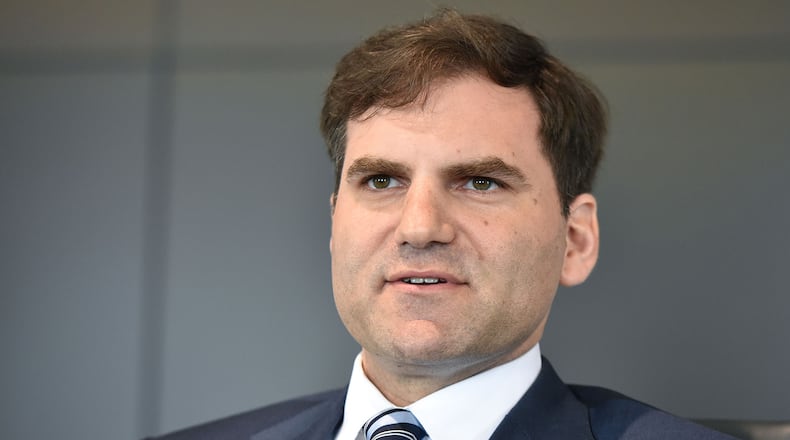The country’s largest provider of telecommunications services to jails and prisons has agreed to end contentious litigation over non-refunded deposits made by its customers.
Global Tel*Link Corp. will establish a $67 million settlement fund to reimburse customers whose deposits were taken by the company from April 2011 to this past October after being deemed inactive, a court motion filed Monday said. The company is also agreeing to change its policies governing inactive accounts so its customers can reclaim unused funds.
The settlement must be approved by U.S. District Judge Amy Totenberg in Atlanta, who has presided over the class-action litigation. A year ago, Totenberg issued a strongly worded order in which she sanctioned GTL for falsely stating that its customers had been fully advised of the terms of their contracts.
The lead plaintiff in the case is Decatur attorney Ben Githieya. In March 2014, while a member of the DeKalb County’s public defender office, Githieya set up a GTL account with a prepaid deposit.
But after a span of 90 days in which Githieya did not use the phone system, GTL classified his account as inactive and converted the unused balance to its own use. The lawsuit contended GTL unjustly enriched itself by doing this to thousands of its customers over the past decade.
Credit: Bill Rankin
Credit: Bill Rankin
“We’re fortunate to reach this point,” Githieya said Monday. “The settlement will allow people in compromised positions inside jails and prisons and who have only one mode of communicating with their loved ones to no longer be victims of corporate greed.”
According to its website, the company provides communications services to 1.2 million people held in nearly 2,000 correctional facilities in all 50 states.
“From start to finish, we had to fight for every inch of ground we won in the case,” co-counsel Mike Caplan and Brandon Waddell said in a statement. “We are proud to have achieved a settlement that will provide full refunds to class members and establish important protections for GTL’s future customers.”
In a court filing Monday, Caplan said GTL took in more than $96 million from inactive accounts over a 10 ½-year period ending in October.
“The settlement will allow people in compromised positions inside jails and prisons and who have only one mode of communicating with their loved ones to no longer be victims of corporate greed."
A key issue was whether GTL’s automated voice recording heard by new customers fully informed them about the company’s use-it-or-lose-it policy. Throughout much of the litigation, GTL repeatedly said its automated script told customers that “balances that remain unused may expire after 90 days,” Totenberg said in her sanctions order.
The judge noted that lawyers representing the plaintiffs found out that GTL had removed its “may expire” statement from its automated system in early 2014 — more than a year before the lawsuit was even filed.
That was “a misrepresentation that boils down to a lie,” Totenberg said, finding it “poisoned” the entire litigation process. “GTL insisted, over and over again in different variants, that this lie was the truth.”
In the proposed settlement, GTL will extend its inactivity policy from 90 days to 180 days, the court motion said. It will also fully disclose this to its customers and give them at least 30 days’ advance notice before taking money from their accounts.
“GTL is pleased that we are able to resolve this long-standing lawsuit in a manner that will provide both immediate and long-term benefits to its customers,” the company said in a statement issued Monday. “GTL has strived to improve customer communication and has upgraded its website and automated telephone services to provide additional disclosures to customers concerning its practices and policies.”
About the Author
The Latest
Featured




